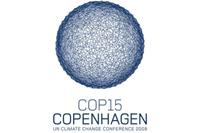Never ending efforts
euinside, December 18, 2009
 There are no prospects for serious concessions at the ongoing negotiations in Copenhagen on the new deal for climate. Since yesterday the informal summit of the leaders of the major economies ended with no success, this morning the Danish prime minister Lars Lokke Rasmussen convened another informal summit, this time public one, aiming at reaching a compromise. So far only one thing is clear - the pillar on which the new deal should lay upon - clear commitments for emissions reductions, mechanism for control and verification, and financing for the most vulnerable states of the world.
There are no prospects for serious concessions at the ongoing negotiations in Copenhagen on the new deal for climate. Since yesterday the informal summit of the leaders of the major economies ended with no success, this morning the Danish prime minister Lars Lokke Rasmussen convened another informal summit, this time public one, aiming at reaching a compromise. So far only one thing is clear - the pillar on which the new deal should lay upon - clear commitments for emissions reductions, mechanism for control and verification, and financing for the most vulnerable states of the world.
In spite the fact that everyone accepts the formula, the details, as usual, appeared to be the biggest hurdle. There are differences on all three pillars. China does not retreat from its position control and verification to be done by national structures, for which the Chinese prime minister Wen Jiabao promised to create and reform so that they could provide true and public statistics about China's implementation of commitments. He did not miss to note that in spite of its determination to fight the effects of global warming, China still has 150 mn people that, according to UN standards, are below the poverty line and this requires even more efforts for the Chinese economy to develop. He reaffirmed Beijing's commitments to reduce greenhouse gas emissions by 42-45% by 2020 below 2005 levels, but measured upon unit of GDP.
The American president Barack Obama insisted that there should be a monitoring and verification mechanism, at all costs and assured that this mechanism should not be intrusive and violate national sovereignty. Mr. Obama stated that America would implement all its commitments which are 17% reduction of emissions by 2020 and above 80% by 2050. The US will participate in financing the Global Fund of $100 bn by 2020. Barack Obama underlined that America would do what it had said, no matter if there was an agreement in Copenhagen or not and recalled that no country would get everything it wanted.
Most applauses got, again, the speech of the Brazilian president Luiz Lula da Silva who, without a written text, took a vigorous commitment - surprising all participants, including the members of his own delegation. He said that if it was necessary Brazil would make further commitments, beyond the already made, if only an agreement could be reached. Mr. Lula da Silva admitted that he did not expect to be invited to last night's informal summit that continued till 2 o'clock in the morning, which reminded him of the times when he as a trade union leader. Brazil called on the summit not to turn in simple horse trading between rich and poor.
"When I became president in 2003 I had to solve a very serious issue - to secure breakfast, lunch and dinner for each Brazilian. Something which for Western citizens is a fact for a long time. However, there still are many countries, especially in Africa, that still cannot afford three meals a day. The same is happening here. But those who give the money have the right to require transparency, even implementation of those policies they are financing. It is also true that we should be very careful with such an interference in the developing countries", Luiz Lula da Silva added. He reminded that the developing countries have quite bad experience with such interference, especially by the IMF and the World Bank. In conclusion he announced that Brazil was ready to participate in the future financial mechanism, but only if the future agreement would lay upon the Kyoto Protocol.
The Russian head of state Dimitry Medvedev said on his turn that the future agreement should go beyond Kyoto so as to control international efforts in this direction. The new treaty needs to be legally binding and based upon justice and shared responsibility, weighed upon development stages of countries. In the meantime, similar to his American counterpart, Medvedev said that Russia would go on with implementation of its own commitments, nevertheless if there was an agreement or not because, he added, this was important for Russia. According to him, each country should take its share of responsibility. The Russian president reported that since 1990 till today Russia had reduced its emissions by 37% and hoped by 2020 to reduce them by another 25%, by in the meantime Russia managed to keep its leadership in production of natural resources.
In an absolute contradiction to the statements for commitments and responsibility, most world leaders have underlined that our planet is only one and whatever is to be decided today will be the legacy for future generations. As in the very beginning of the session the Danish prime minister Lars Rasmussen said - "this is not the end of humanity, but a new beginning for a bright and green future".
 | © White House press service
| © White House press service | © COP15
| © COP15 | © COP15
| © COP15